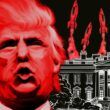China should seek nuclear stability, not disarmament utopia
By Rajesh Rajagopalan, December 16, 2016
To debate whether China can lead the world toward nuclear disarmament, as my colleagues have done in this roundtable, is to ask the wrong question at the wrong time. China is not in the habit of tilting at windmills, and trying to shame Beijing into taking the disarmament lead is either evidence of desperation or an exhibition of rootlessness from contemporary political realities.
Real progress toward global arms control and nuclear disarmament requires some consensus among the great powers. This is why the nuclear nonproliferation regime was so strong during the Cold War: Both the United States and the Soviet Union saw nonproliferation as in their own interest, and they cooperated to advance that interest. No such consensus exists today, especially among the great powers.
The world order appears set to spiral toward greater conflict and chaos. And this is not because Donald Trump was elected US president—though his election seems likely to increase the pace of existing trends. China, Russia, and sundry thuggish regimes around the world have been pushing the limits of tolerable behavior for the last eight years, as the United States under Barack Obama has found one excuse after another to look the other way. It was bad enough that the Obama administration refused to involve itself seriously in the terrible civil war in Syria. Worse is that Washington has failed to generate confidence that it will stand by its allies and has not even tried to counter rising challengers such as China. The result is an increasing sense among weaker regional players, from Europe to Asia, that they are on their own.
Trump’s election has only deepened the perception that the United States is washing its hands of its global commitments. The consequence is that even countries such as Japan and Germany, which not long ago were considered “civil powers” that emphasized economic integration over military strength, are now worried about how to ensure their security. If they and other US allies decide they are on their own, their responses could include reaching for nuclear weapons. This would signal the end of the nonproliferation regime.
Trump is fundamentally different from Obama. The current president has little interest in playing the great game at all. Trump seems intent on playing it haphazardly, by instinct rather than according to strategy, and on his own rather than with allies. Trump also appears intent on taking a hard-line stance against China—in line with his campaign rhetoric. If China reacts harshly, conflict could quickly result. Washington’s allies and its potential adversaries both have reasons to feel insecure, creating the potential for a much more tense and uncomfortable situation in international politics, with all powers seeking unilateral measures to secure themselves.
In this environment, nuclear disarmament shouldn’t be the primary focus. Rather, the focus should be on maintaining some measure of stability through confidence-building measures and arms control. China can do a great deal to build confidence, especially in Asia. A China that behaves with greater moderation can greatly reduce insecurity in its region and limit the aftershocks of Trump’s election. Beijing could also contribute to stability by demonstrating greater openness and transparency, lack of which is a major cause of regional concerns about China.
Beijing should also strive to strengthen the nonproliferation regime. North Korea would be one aspect of this effort, but equally important is shoring up loss of faith in the regime. A strong nuclear nonproliferation regime serves China’s purposes. Some of China’s neighbors, including Japan and South Korea, are capable of building nuclear weapons but have chosen not to do so. It’s in Beijing’s interest to ensure that they do not change their minds.
China can also lead in its region and beyond by attempting to limit new security competitions in outer space and the cyber realm. Beijing could invest in an Asian version of the Helsinki Process, a broad multilateral initiative that did much to ameliorate tensions between the Soviet and Western blocs in the 1970s. These are difficult projects, but compared to nuclear disarmament, they seem much more achievable and beneficial in the short term.
The current moment provides Beijing a great opportunity to establish and demonstrate normative leadership in its region and elsewhere. The key question is whether Beijing will recognize and seize this unexpected opportunity to reduce the region’s dependence on Washington as security provider.
Topics: Nuclear Weapons
Share: [addthis tool="addthis_inline_share_toolbox"]














